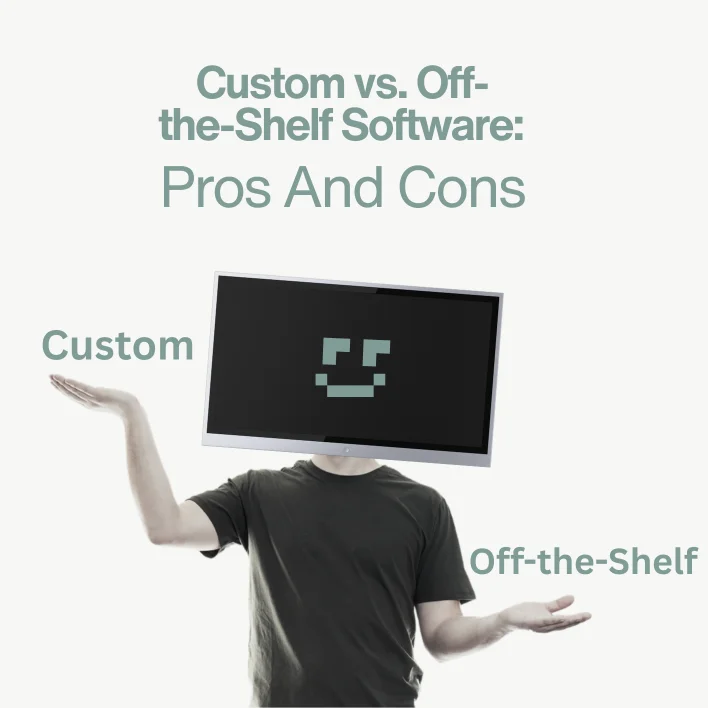The New Era of AI in 2025: From Gemini 3 to Creative AIs
Learn about the best AI tools for 2025, including Nano...
We use cookies for our website to give you the most relevant experience by remembering your preferences. By clicking “accept”, you consent to use of ALL the cookies
This website uses cookies to improve your experience while you navigate through the website. Out of these, the cookies that are categorized as necessary are stored on your browser as they are essential for the working of basic functionalities of the website. We also use third-party cookies that help us analyze and understand how you use this website. These cookies will be stored in your browser only with your consent. You also have the option to opt-out of these cookies. But opting out of some of these cookies may affect your browsing experience.
Necessary cookies are absolutely essential for the website to function properly. These cookies ensure basic functionalities and security features of the website, anonymously.
| Cookie | Duration | Description |
|---|---|---|
| cookielawinfo-checkbox-functional | 11 months | This cookie is set by GDPR Cookie Consent plugin. The cookie is used to store the user consent for the cookies in the category “Analytics”. |
| cookielawinfo-checkbox-functional | 11 months | The cookie is set by GDPR cookie consent to record the user consent for the cookies in the category “Functional”. |
| cookielawinfo-checkbox-necessary | 11 months | This cookie is set by GDPR Cookie Consent plugin. The cookies is used to store the user consent for the cookies in the category “Necessary”. |
| cookielawinfo-checkbox-others | 11 months | This cookie is set by GDPR Cookie Consent plugin. The cookie is used to store the user consent for the cookies in the category “Other. |
| cookielawinfo-checkbox-performance | 11 months | This cookie is set by GDPR Cookie Consent plugin. The cookie is used to store the user consent for the cookies in the category “Performance”. |
| viewed_cookie_policy | 11 months | The cookie is set by the GDPR Cookie Consent plugin and is used to store whether or not user has consented to the use of cookies. It does not store any personal data. |
Functional cookies help to perform certain functionalities like sharing the content of the website on social media platforms, collect feedbacks, and other third-party features.
Performance cookies are used to understand and analyze the key performance indexes of the website which helps in delivering a better user experience for the visitors.
Analytical cookies are used to understand how visitors interact with the website. These cookies help provide information on metrics the number of visitors, bounce rate, traffic source, etc.
Advertisement cookies are used to provide visitors with relevant ads and marketing campaigns. These cookies track visitors across websites and collect information to provide customized ads.
Other uncategorized cookies are those that are being analyzed and have not been classified into a category as yet.
Cyberia Tech, Inc. respects your privacy. This Privacy Policy explains how we collect, use, and share your information. By using our services, you agree to this policy. If any other agreements conflict with this Privacy Policy, the terms of those agreements prevail.
Cyberia Tech complies with the EU-US and Swiss-US Privacy Shield Frameworks for handling personal data from the EEA, UK, and Switzerland. In case of any conflict, the Privacy Shield Principles prevail. Learn more at Privacy Shield. Key Definitions
Information linked to an individual, transferred from the EEA, UK, or Switzerland to the U.S.
Data revealing race, religion, health, sexual orientation, and similar categories.
Effective Date: [ 2026 / 02 / 27 ]
Welcome to The Cyberia Tech ! By accessing or using our website or services, you agree to
comply with and be bound by these Terms of Use and our Privacy Policy. If you do not agree with
these terms, please do not use our Services.
Loading
0 %

Startups face countless challenges as they work to establish their presence and scale their businesses. With limited resources and a need to move quickly, every decision counts. One of the most critical choices a startup will face is how to approach its software needs. Should you invest in custom software or rely on off-the-shelf software?
This decision isn’t just a technical one—it’s strategic. It can influence everything from the speed of your growth to the ability to adapt to new challenges. Understanding the differences between custom vs. off-the-shelf software will help you navigate the decision-making process, ensuring you make a choice that aligns with your startup’s goals and vision.
Let’s take a closer look at both options and weigh the pros and cons. But before we dive deep, consider this: a startup’s software strategy can either fuel its growth or become a roadblock. Whether you’re looking for the best tech tools for scaling startups or curious about leveraging AI for startup growth, this article will provide insights that make all the difference.

Custom software is developed specifically for your company’s needs. Unlike off-the-shelf software, which is designed to cater to a wide variety of users, custom software is built with your unique requirements in mind. This software is created to solve specific problems, streamline processes, and support your business’s individual goals.
For startups, custom software offers the opportunity to create something perfectly aligned with their business model. Whether you need a tailored CRM, project management tool, or an entire enterprise system, custom software ensures that you only pay for the features and functionalities you truly need.

Off-the-shelf software is ready-made and available for immediate purchase or download. These solutions are often widely used across many industries, offering general features that suit a broad range of businesses. From accounting software to customer service platforms, there’s a vast selection of off-the-shelf software options available for startups at different stages of growth.
The key appeal of off-the-shelf software is its affordability, speed of deployment, and proven reliability. For startups, this can be an attractive option as it allows you to get up and running quickly without the long development timelines associated with custom software.

One of the major reasons startups opt for custom software is the level of personalization it offers. Custom software allows you to design a solution that directly addresses your specific business challenges. With custom software, you have full control over the features, user experience, and scalability.
Another advantage is flexibility. As your business grows and adapts to market changes, your custom software can evolve with you. Unlike off-the-shelf software, which may require workarounds or limitations, custom software can be updated and upgraded in line with your company’s changing needs.
For startups with unique processes, a custom software solution often proves to be a better long-term investment. It can streamline operations, improve productivity, and even enhance customer satisfaction by offering tailored solutions.
However, the development of custom software comes with its own set of challenges. It requires a significant upfront investment in terms of both time and money. Additionally, you’ll need ongoing support for updates and maintenance, which can incur additional costs over time.
On the other hand, off-the-shelf software offers immediate access to tried-and-tested solutions. This is a significant advantage for startups that need to scale quickly but don’t have the resources to wait for a custom-built solution. Whether it’s a simple accounting tool or a more advanced customer relationship management system, off-the-shelf software can help you get started immediately.
Off-the-shelf software also tends to have a lower initial cost compared to custom software, as it’s a ready-made solution designed for a broad user base. Many of these solutions are scalable, too, which means they can grow with your business, though they may not offer the deep level of personalization found in custom software.
One of the biggest advantages is the security and support that comes with off-the-shelf software. Since these solutions are already in widespread use, developers provide regular updates, patches, and security improvements. The community around off-the-shelf software is often large, meaning you can tap into a wealth of knowledge and resources.
However, the downside is the lack of flexibility. Off-the-shelf software can come with limitations in terms of customization and may require workarounds for features that don’t quite meet your business’s needs. This can lead to inefficiencies and frustration in the long run.

As technology evolves, leveraging AI for startup growth has become a game changer. Startups now have access to advanced tools powered by artificial intelligence, which can significantly enhance the capabilities of both custom and off-the-shelf software. AI-powered software can help businesses analyze large datasets and generate insights that drive smarter decision-making.
For instance, big data and analytics for startups is a powerful combination for understanding market trends, customer behavior, and operational efficiency. Whether you’re working with custom software or off-the-shelf software, integrating AI can make a world of difference by providing predictive analytics, automation, and even personalized experiences for your customers.
Choosing the right software for your startup should not just be about what’s available today, but also about future-proofing your business. As future tech trends for scaling startups continue to evolve, adopting software that can integrate AI and big data tools will give you a competitive edge. Even if you start with off-the-shelf software, the ability to integrate emerging technologies into your systems will be crucial.

For many startups, Software-as-a-Service (SaaS) has become a popular choice due to its accessibility, cost-effectiveness, and scalability. SaaS platforms offer cloud-based services that are easy to implement and maintain. Whether you choose custom software or off-the-shelf software, many modern SaaS solutions are designed to integrate seamlessly with both types.
SaaS tools often provide the flexibility to scale up or down as needed, making them ideal for growing startups. As your company expands, you can take advantage of advanced features or add-ons that enhance the software’s functionality. For startups looking to balance cost with flexibility, SaaS offers an excellent compromise between custom software and off-the-shelf software.
Additionally, SaaS providers are increasingly integrating AI and big data capabilities into their platforms, offering startups the chance to stay ahead of the curve when it comes to leveraging technology for growth.

Ultimately, the decision to choose custom vs. off-the-shelf software depends on your startup’s specific needs. If you’re a young company looking to scale quickly with limited resources, off-the-shelf software may be the right solution to help you get started. It’s cost-effective, fast, and widely supported, allowing you to focus on growing your business rather than building complex systems from scratch.
However, if your startup has unique requirements that off-the-shelf software can’t meet, custom software may be the better long-term investment. With custom software, you can create a system that perfectly aligns with your company’s vision, scale it as your business grows, and integrate the cutting-edge technologies that will drive future success.
What is the main difference between custom and off-the-shelf software?
The main difference lies in personalization. Custom software is built specifically for your business needs, while off-the-shelf software is a ready-made solution for a broader audience.
Is custom software worth the investment for startups?
Yes, if your startup has unique needs that off-the-shelf software can’t meet, custom software can provide tailored solutions that grow with your business, offering long-term value.
Can off-the-shelf software scale with my startup?
Many off-the-shelf software options are scalable and can grow with your startup. However, they may lack the deep customization needed to perfectly fit your specific business model.
How does AI impact the decision between custom and off-the-shelf software?
AI can enhance both custom and off-the-shelf software, offering features like automation, predictive analytics, and personalized experiences, making them more effective in supporting startup growth.
Choosing between custom vs. off-the-shelf software is not just a matter of cost—it’s about aligning your software with your company’s goals. The right decision can help you leverage the best tech tools for scaling startups, tap into the power of AI for startup growth, and harness big data and analytics for startups to make smarter business decisions.
While off-the-shelf software may offer an easy and quick solution, custom software provides tailored solutions that can evolve with your business. If you’re unsure, consider integrating SaaS platforms to balance both options while future-proofing your startup. No matter which route you take, it’s essential to choose a solution that allows you to scale and grow efficiently.
Ready to take your startup to the next level? Whether you’re developing custom software or selecting off-the-shelf software, now’s the time to make the right choice for your business’s future. Don’t just adapt to technology—leverage it to innovate and lead in your industry. Take action today, and watch your startup thrive tomorrow.
You Can Get More Information!
